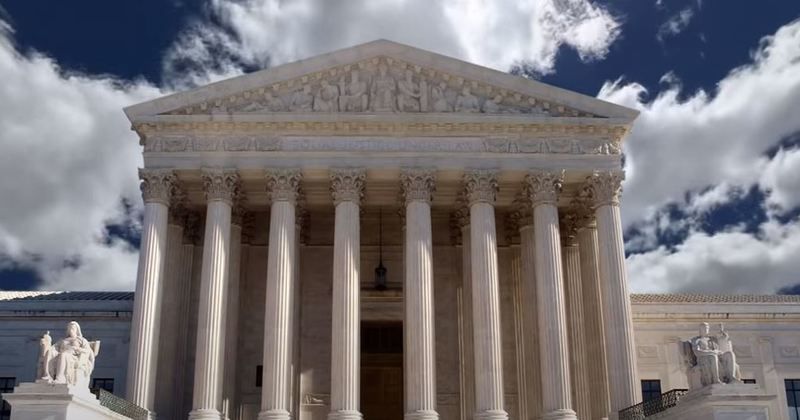The recent decision by the Supreme Court to not revive the controversial Missouri law, known as the Second Amendment Preservation Act, is drawing attention due to its prohibition on local law enforcement assisting federal officials in enforcing specific federal gun regulations.
Challenged by the Justice Department, the 2021 law sparked legal debates as it was seen to interfere with the Constitution’s Supremacy Clause, which establishes the precedence of federal laws over state laws.
The Missouri law imposed significant penalties, including fines of up to $50,000, for aiding in the enforcement of federal laws deemed potentially unconstitutional by the state legislature. These federal laws included regulations mandating the registration of certain dangerous weapons and requiring firearms dealers to maintain records. While the law permitted state agencies to assist in enforcing federal laws that had corresponding state counterparts, it faced opposition on constitutional grounds.
Earlier in March, a federal judge blocked the law, arguing that it conflicted with the Supremacy Clause. The Biden administration supported this decision, emphasizing the principle that state legislation should not undermine federal laws. Despite an appeals court’s refusal to suspend the ruling, Missouri’s Attorney General, Andrew Bailey, sought Supreme Court intervention, which was subsequently denied.
Justice Clarence Thomas dissented, advocating for the law to take effect. Justice Neil Gorsuch, joined by Justice Samuel Alito, concurred with the court’s order “under the present circumstances.” In his plea to the Supreme Court, Bailey argued that the federal government lacked legal standing to challenge the state law, asserting the state’s Tenth Amendment authority.
“State governments cutting off state resources for federal enforcement is not an injury; it is a feature of a State’s settled Tenth Amendment authority,” Bailey told the justices.
In March, US District Judge Brian Wimes rendered a decision that invalidated the law in its entirety. The ruling clarified that state and local law enforcement in Missouri could engage in collaborative efforts with federal task forces and contribute to federal firearm crime investigations without incurring penalties.
“State and local law enforcement officials in Missouri may lawfully participate in joint federal task forces, assist in the investigation and enforcement of federal firearm crimes, and fully share information with the Federal Government without fear of (SAPA’s) penalties,” Wimes wrote.
The decision underscored that the law, designed to safeguard citizens, ironically subjected them to increased harm by obstructing the federal government’s capacity to enforce constitutionally enacted firearms regulations.
“While purporting to protect citizens, SAPA exposes citizens to greater harm by interfering with the Federal Government’s ability to enforce lawfully enacted firearms regulations designed by Congress for the purpose of protecting citizens within the limits of the Constitution,” he wrote.
Solicitor General Elizabeth Prelogar characterized the Missouri law as “clearly unconstitutional,” highlighting the well-established principle that the Supremacy Clause prohibits states from nullifying or impeding federal law enforcement. It is noteworthy that U.S. law enforcement officials reported facing challenges in the state, as local authorities were cautious about potential violations under the law.
“As this court has long recognized,” she wrote, “the Supremacy Clause precludes a State from nullifying federal law or interposing obstacles to the enforcement of federal law.”
The recent ruling by the Supreme Court contributes to the ongoing legal discussions regarding the interplay between state and federal authority in the domain of gun regulations, echoing broader conversations about constitutional principles and individual rights.
 Telegram is where we really talk. Don't miss out!
Telegram is where we really talk. Don't miss out!









